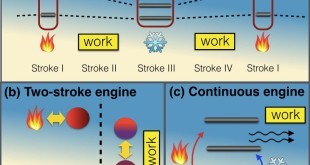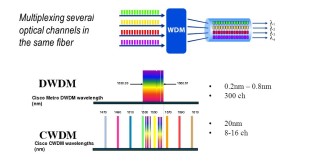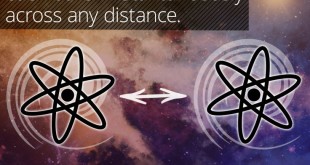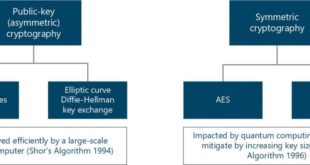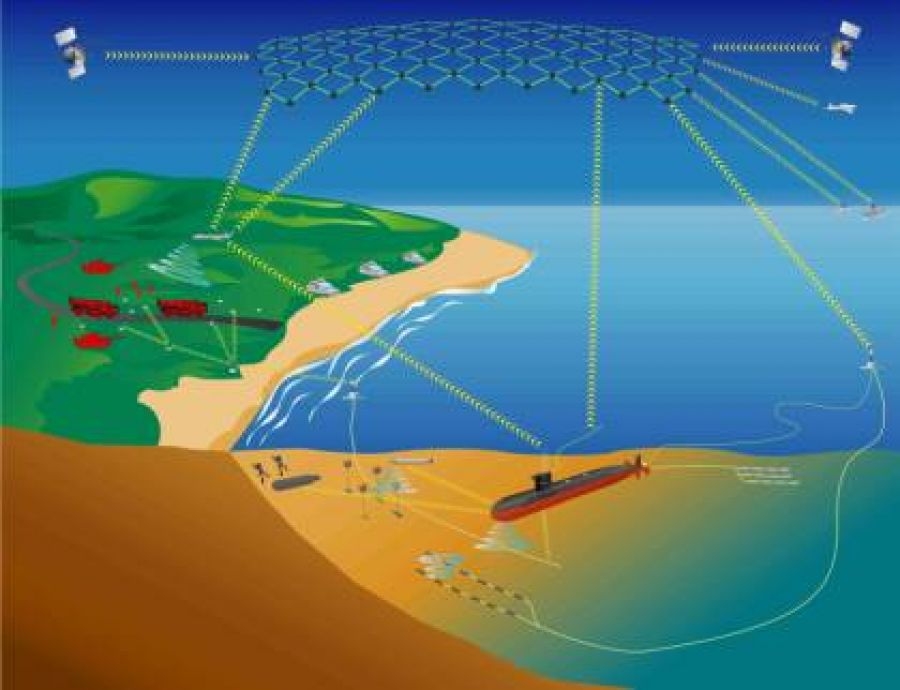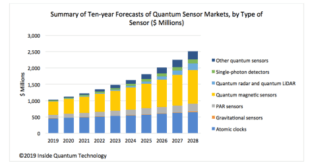We are in midst of the second quantum revolution moving from merely computing quantum properties of systems to exploiting them. Researchers are developing new capabilities in secure communication, ultra-sensitive and high signal to noise physical sensing of the environment and Quantum Information Science (QIS). Yet many scientists believe that quantum …
Read More »UK implementing National Strategy of Quantum Technology to become Global Leader in future Quantum industry
The demand for quantum technologies is being driven by large and significant societal challenges, including the need to build in more inhospitable places, for greater security around information and transactions, for better medicines and therapies, and to counter cyber terrorism. Technologies that will allow fire crews to see through smoke …
Read More »Thermotronics aims to process information with Thermal networks and heat flows
The control of electric currents in solids is at the origin of modern electronics which has revolutionised our daily life. The diode and the transistor introduced by Braun and Bardeen and Brattain are undoubtedly the corner stones of modern information technologies. Such devices allow for rectifying, switching, modulating, and even …
Read More »Quantum thermodynamics and Quantum Heat Engines can lead to development of microscopic heat engines, refrigerators and solar cells
One of the most important features of thermodynamics is that it has improved human quality of life amazingly during the last centuries. Since in 1606, the Spanish inventor Jerónimo de Ayanz y Beaumont patented the first steam engine a great effort has been done in developing new and better thermal …
Read More »Quantum cryptography links integration on commercial wide-area optical networks using Wavelength division multiplexing (WDM) is essential to develop global scale Quantum Key Distribution Networks (QKD)
Quantum key distribution (QKD), establishes highly secure keys between distant parties by using single photons to transmit each bit of the key. A unique aspect of quantum cryptography is that Heisenberg’s uncertainty principle ensures that any attempts to intercept and measure quantum transmissions, will introduce an anomalously high error rate …
Read More »Quantum Entanglement advances enables Quantum Computers, high-speed ultra secure communications, high precision Quantum Sensors and Imaging
The extraordinary promise of quantum technology—depend on quantum “entanglement,” in which the physical states of two or more objects such as atoms, photons or ions become so inextricably connected that the state of one particle can instantly influence the state of the other—no matter how far apart they are. Entanglement links …
Read More »Industry preparing for Post Quantum or Quantum proof cryptography as Quantum computers threaten global communication digital infrastructure
Cryptography is a vital part of cybersecurity. Security properties like confidentiality, integrity, authentication, non-repudiation rely on strong cryptographic mechanisms, especially in an always connected, always online world. In addition, cryptography’s applications open up new opportunities and markets: digital signatures or online transactions would not be possible without it. Quantum …
Read More »Ultra secure, Quantum Communications using Quantum Key Cryptography (QKD) for Underwater Vehicles and Submarines critical to maintain nuclear deterrence capability
Underwater communication is vital for undersea exploitation and modern communication. Conventional ways which employ acoustical technique for underwater communication have their drawbacks including high path loss, narrow bandwidth, high bit error rate, among which unconditional security is more demanding due to commercial and secure interest. Submarine communications have always been a challenge …
Read More »Quantum Sensors like Quantum magnetometers entering commercial market to detect and measure extremely small signals
The world, say many experts, is on the verge of a second quantum revolution. Energy quantization gave us modern electronics via the transistor and the laser, but humans’ burgeoning ability to manipulate individual atoms and electrons could potentially transform industries ranging from communications and energy to medicine and defense. The most …
Read More »New Materials enabling Quantum repeaters and modems, a key technology for extremely secure large scale Quantum Internet
The first quantum revolution brought about semiconductor electronics, the laser and finally the internet. The coming, second quantum revolution promises spy-proof communication, extremely precise quantum sensors and quantum computers for previously unsolvable computing tasks. Quantum secure communication relies on sharing of entangled states between parties. Over short distances (less …
Read More » International Defense Security & Technology Your trusted Source for News, Research and Analysis
International Defense Security & Technology Your trusted Source for News, Research and Analysis



